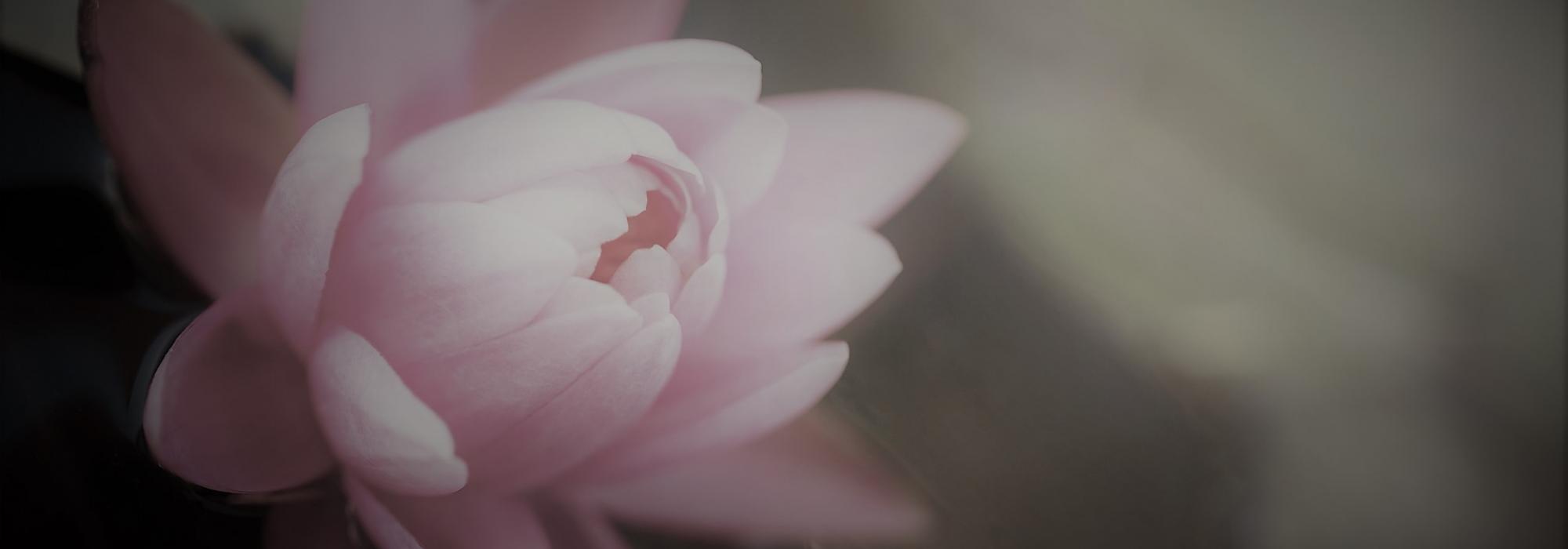Jinasena, the author of Pūrvapurāṇa, hailed from Karnataka. He composed this work in an age when the central tenets of literary aesthetics were taking shape, and so his observations merit close study. Let us examine a few relevant verses from Pūrvapurāṇa.
Jinasena held that poetry is a vehicle of religion. The foremost aim of poetry, according to him, is the dissemination of dharma:
त एव कवयो लोके त एव च विचक्षणाः।
येषां धर्मकथाङ्गत्वं भारती प्रतिपद्यते॥
धर्मानुबन्धिनी या स्यात्कविता सैव शस्यते।
शेषा पापास्रवायैव सुप्रयुक्तापि जायते॥
केचिन्मिथ्यादृशः काव्यं ग्रथ्नन्ति श्रुतिपेशलम्।
तत्त्वधर्मानुबन्धित्वान्न सतां प्रीणनक्षमम्॥ (1.1.62–64)
Only those are poets and only those are scholars who use language to tell the tale of dharma. Poems related to dharma are worthy of praise. Other literary works, though well composed, only incur pāpa. Some poets with a skewed sense of perception compose sweet-sounding poems far removed from the ultimate verities of life. The wise do not relish these works.
The foregoing appears as an echo of Aśvaghoṣa’s words expressed more vociferously. This is because writers who take up poetry only to popularize religious beliefs are all similar. Aestheticians such as Bhāmaha had not held that poetry should be opposed to dharma. Contrarily, they had ordained that a poet should assist connoisseurs in achieving the goals of human life (catur-varga). And it was not just theorists; even great poets such as Kālidāsa swore by this. However, poets such as Aśvaghoṣa and Jinasena who were blinded by religion had a restricted view of dharma and the objectives of poetry. In the ultimate analysis, the aim of poetry is rasa, and the aim of dharma is sustainable welfare. These two concepts are not divorced from religion but are beyond it.
Jinasena goes hammer and tongs against people who compose poetry without acquiring the requisite knowledge:
अव्युत्पन्नतराः केचित्कवित्वाय कृतोद्यमाः।
प्रयान्ति हास्यतां लोके मूका इव विवक्षवः॥
तस्मादभ्यस्य शास्त्राणि उपास्य च महाकवीन्।
धर्म्यं शस्यं यशस्यं च काव्यं कुर्वन्तु धीधनाः॥ (1.1.65, 74)
Some scatterbrains without a modicum of learning attempt to compose poetry. They only become the butt of jokes, like dumb people who wish to speak. May intelligent people study various śāstras, go through the compositions of great poets, and then compose wonderful poems aligned to dharma that bring them fame.
In these verses the poet has eloquently argued for erudition. This doesn’t come as a surprise, because Jinasena existed in an age when scholarship blossomed uninhibited in India. What’s surprising is: the poet has not discussed pratibhā in this section of the work.
In the next set of verses Jinasena condemns pilferers of poetry:
केचिदन्यवचोलेशानादाय कविमानिनः।
छायामारोपयन्त्यन्यां वस्त्रेष्विव वणिग्ब्रुवाः॥
केचिदन्यकृतैरर्थैः शब्दैश्च परिवर्तितैः।
प्रसारयन्ति काव्यार्थान् प्रतिशिष्ट्यैव वाणिजाः॥ (1.1.66, 68)
Cunning cloth merchants change the colour of stolen clothes and present them as their own. In the same way, poetasters steal others’ words in bits and pieces, dress them up differently, and present them as their own. Yet other poets filch ideas and phrases, and circulate them widely. They are like merchants who sell others’ commodities.
We have previously discussed the concept of haraṇa at length, so we need not examine it again. Jinasena was a Jaina monk, and monks are typically unmoved by worldly lapses. But the very thought that even poets can steal was enough to enrage Jinasena! By this we understand that poets and scholars of the past attached the greatest importance to this issue. What makes the present set of verses unique is the novelty of allusions and the force of expression – they have shown a familiar concept in a new light. The reference to merchants is apt, for merchants have been and continue to be the support system of the Jaina community. Jaina authors typically allude to ideas from the field of trade in their poems, as evidenced by these verses composed by Jinasena. Interested readers can read the Kannada poem Dharmāmṛta authored by Nayasena, which presents scores of such ideas.
In the next two verses Jinasena dresses down poets with feeble imagination and expression:
केचिद्वर्णोज्ज्वलां वाणीं रचयन्त्यर्थदुर्बलाम्।
जातुषी कण्ठिकेवासौ छायामृच्छति नोच्छिकाम्॥
केचिदर्थमपि प्राप्य तद्योग्यपदयोजनैः।
न सतां प्रीणनायालं लुब्धा लब्धश्रियो यथा॥ (1.1.69–70)
Some poets use glitzy words that mean little. These words are like a wax necklace that glitters but cannot stand the scrutiny of fire. Yet other poets conceive good ideas but cannot couch them in appropriate, attractive words. They are like misers with lots of money who cannot appease the wise.
Jinasena’s observations here are worth their weight in gold. Here, he uses the words śabda and artha to mean poetic description and storyline, respectively. To put it differently, he uses śabda to mean figures of sound and sense, and artha to mean aesthetic experience. Such a comprehensive view of poetry, coupled with novel allusions, has made these verses memorable. Jewels made of wax might glow and glitter but will melt the moment they encounter fire. In the same manner, shiny words divested of profound thoughts will melt when they are critically examined. The next allusion is to a miser. Typically, a miser neither uses money for himself nor gives it to the needy. This attitude renders the money useless – artha that does not support kāma and dharma has no reason to exist. In the same manner, good ideas ineffectively expressed will go in vain.
The next verse pokes fun at people who eagerly kickstart activities but do not complete them:
यथेष्टं प्रकृतारम्भाः केचिन्निर्वहणाकुलाः।
कवयो बत सीदन्ति कराक्रान्तकुडुम्बिवत्॥ (1.1.71)
Some poets begin a composition with great enthusiasm. But they lose steam midway and struggle to complete the work. They are very much like householders burdened by excessive tax.
The aesthetician Kṣemendra has drawn attention to this disturbing trend in his treatise, Kavikaṇṭhābharaṇa (2.22). That Jinasena has recorded it much before Kṣemendra shows his astuteness. His point is about the ability of poets to commit to their work, persevere, and complete it. People without a firm resolve flit from one work to another without completing any. Such slackness ill behoves a poet.
Next, Jinasena talks about the poet’s conscience:
परे तुष्यन्तु वा मा वा कविः स्वार्थं प्रतीहताम्।
न पराराधनाच्छ्रेयः श्रेयः सन्मार्गदर्शनात्॥ (1.1.72)
A poet should strive to accomplish his objective regardless of what others think of it. It is better to lead by example than to [waste time in] convincing others.
Jinasena exhorts poets to compose works for their own joy. However, his innate religious bent of mind has made him declare, Poets should lead people on the right track. Imparting instruction is the foremost goal of poetry. This stand differs from—but is complementary to—the definitive view that a poem should be written and read primarily for the joy it offers. Apart from this, Jinasena’s advice to poets is sound.
He has this to say about the lack of consensus among poets and connoisseurs:
पुराणकवयः केचित् केचिन्नवकवीश्वराः।
तेषां मतानि भिन्नानि कस्तदाराधने क्षमः॥
केचित् सौशब्द्यमिच्छन्ति केचिदर्थस्य सम्पदम्।
केचित् समासभूयस्त्वं परे व्यस्तां पदावलीम्॥
मृदुबन्धार्थिनः केचित् स्फुटबन्धैषिणः परे।
मध्यमाः केचिदन्येषां रुचिरन्यैव लक्ष्यते॥
इति भिन्नाभिसन्धित्वाद्दुराराध्या मनीषिणः।
पृथग्जनोऽपि सूक्तानामनभिज्ञः सुदुर्ग्रहः॥ (1.1.76–80)
Among the poets some are old and some are new. Each one thinks differently; we cannot convince them all. A few like grammatically correct words, and a few others like rich content. A few like an abundance of compound-words, and a few others like a string of separate words. Some look for melody in words, and others look for brilliance. Yet others prefer a mix of these. And there are some whose taste is totally different! In this way, scholars have varying preferences, and it is impossible to achieve consensus among them. Likewise, it is difficult to please the common man who hasn’t an idea about poetry.
In these verses Jinasena has candidly expressed the thoughts that were perhaps simmering in the minds of his peers. The foregoing mainly relates to the formal aspects of poetry such as guṇa, rīti, vṛtti and saṅghaṭanā. Kuntaka has analyzed these issues at length and has made conclusive observations.
Lastly, let us analyze Jinasena’s conception of an ideal poem:
कवेर्भावोऽथवा कर्म काव्यं तज्ज्ञैर्निरुच्यते।
तत्प्रतीतार्थमग्राम्यं सालङ्कारमनाकुलम्॥
केचिदर्थस्य सौन्दर्यमपरे पदसौष्ठवम्।
वाचामलङ्क्रियां प्राहुस्तद्द्वयं नो मतं मतम्॥
सालङ्कारमुपारूढरसमुद्भूतसौष्ठवम्।
अनुच्छिष्टं सतां काव्यं सरस्वत्या मुखायते॥
अस्पृष्टबन्धलालित्यमपेतं रसवत्तया।
न तत्काव्यमतिग्राम्यं केवलं कटु कर्णयोः॥
महापुराणासम्बन्धि महानायकगोचरम्।
त्रिवर्गफलसन्दर्भं महाकाव्यं तदिष्यते॥ (1.1.94–97, 99)
Literary aestheticians define poetry as an activity peculiar to the poet. A poem is lucid, charming and bedecked with figures of speech; it is not crass, and it does not confound. As for figures of speech, some say only great ideas adorn poetry, while others opine only elegant words beautify it. We say they are both good. A poem refined by such figures of speech, full of aesthetic sentiment, formally correct and consistent, and original is verily the visage of Sarasvatī! On the other hand, a misbegotten composition shorn of aesthetic sentiment doesn’t qualify as poetry. It is only an obscene effusion that punctures the ear.
In these verses Jinasena has summarized the discussions on the nature of poetry prior to the advent of the dhvani school. He has chosen figures of speech to analyze poetry at the level of individual verses, and aesthetic sentiment to analyze it at the level of the whole work. This is all very good. His definition of a mahākāvya is concise and yet comprehensive. The way he has played on words to connect a poem with Sarasvatī’s visage is brilliant.
Jinasena’s insights into literary theory befit his elegantly composed elaborate work, Pūrvapurāṇa.










































